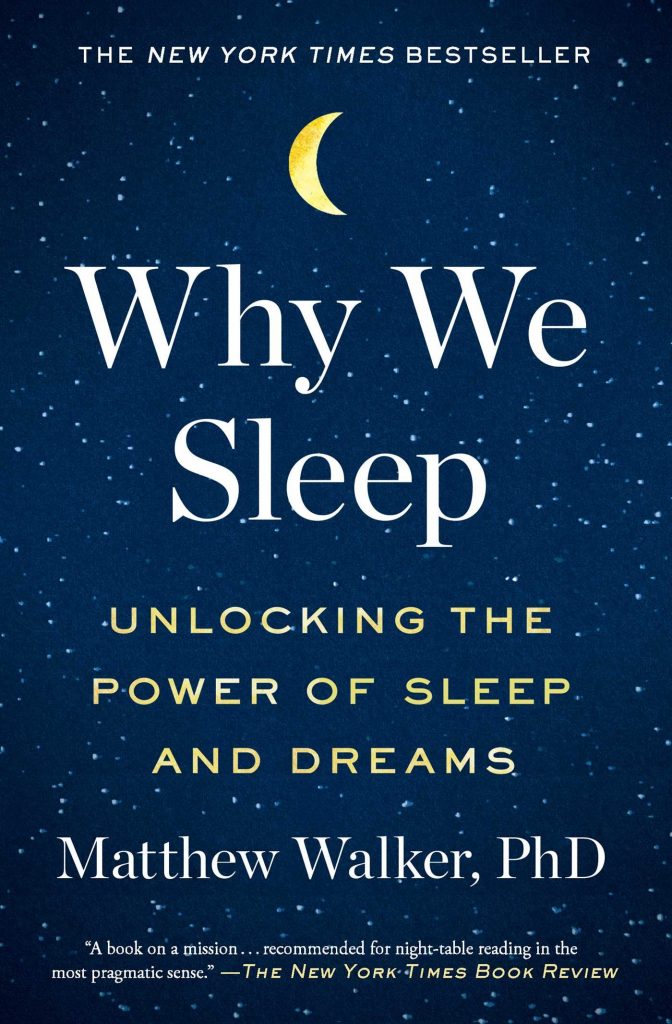
If I ask you, “What kind of a relationship you have with your sleep?” and your answer happens to be, “Well, it’s kind of complicated,” then I definitely encourage you to pick up this book. I just finished reading Why We Sleep: Unlocking the Power of Sleep and Dreams by Matthew Walker, a former psychology professor at Harvard Medical school who is now a professor of neuroscience and psychology at the University of California, Berkeley. Walker is also the founder and director of the Center for Human Sleep Science. This book is one of the most important and fascinating scientifically-studied research-based book that is explained with complete clarity and easy to read (for laymen) that I have read in the last decade.
This book would definitely change your life and shed light on one of the mysteries of our lives – sleep. Like death, sleep has always carried that unknown factor for me. Since I was young, I would always ask myself these two questions: “Where do we go after we leave our material body?” and “Where do we go when we sleep and dream?” Of course, scientifically, we absolutely don’t know a thing about where we go after death, and we still don’t know enough about where we go when we sleep, yet sleep is the foundation of our lives.
In this book we learn that we all need sleep, we humans as well as animals, with sea creatures having the ability to sleep with half a brain at a time and even some who never fully sleep, like dolphins. We need seven to nine hours of sleep to maintain our cognitive performance. Lack of sleep could affect our physical, mental, and emotional health. Lack of sleep is linked to overeating, ADHD in the young, Alzheimer’s in the old, anxiety, and immune deficiency. It can even affect our lifespan. Sleep is the best natural remedy to help us live longer, think smarter, and look better. It enhances our memory, protects us from cancer, diabetes, colds, and flus.
In this book we learn to sleep better we should avoid alcohol and coffee. Keep in mind that decaffeinated coffee does not mean it has no caffeine; it still has some percentage of caffeine in it. We should avoid nicotine and any medicines which could interfere with our sleep. We should take a short midday nap if we can but avoid napping after 3 p.m. We should remove the blue light from our smartphones and our computers, replace light bulbs with L.E.D. bulbs, keep the temperature of our bedrooms towards the cool side — around 65 degrees, and we should use dim lighting before we sleep. We should avoid large meals at night, get the right amount of sun exposure, do not exercise at least two hours before bedtime, stick to the same sleeping schedule, relax, take a hot bath, avoid lying in bed awake, and especially avoid taking any sleeping pills.
This book is definitely very insightful and detailed, but never boring. It is a complex, scientifically researched, and extremely engaging book to read. It took me a while to finish this book, but I enjoyed every page immensely. It is a fascinating read. Once I had turned the last page and put the book down, I felt that I was influenced and changed by this book. The effect stayed with me for days after. Frankly, I now look at sleep in a completely new light.
Tags: Book Review, Book Reviews, Matthew Walker
Posted in Book Reviews, Reviews |


Leave a Reply